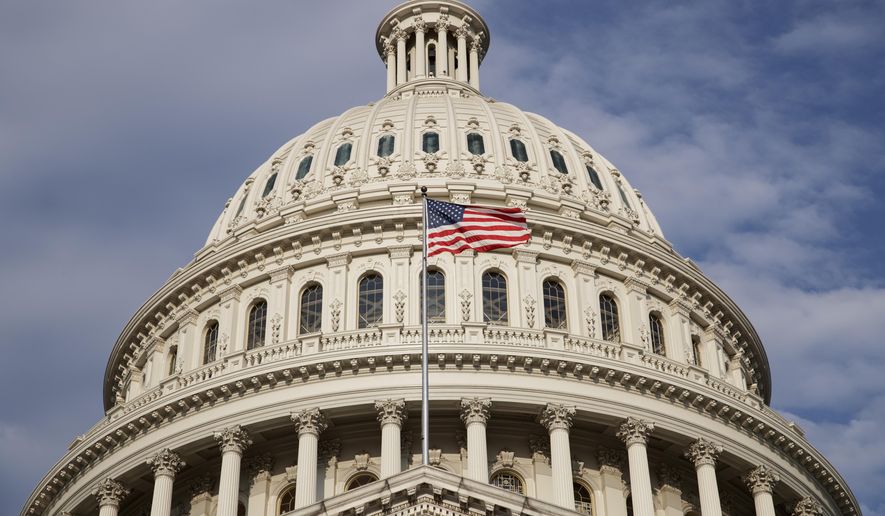An expansion of veterans health care that President Trump signed Wednesday has touched off a budget battle, pitting the White House and GOP leaders against a bipartisan group of senators who want a $50 billion spending boost for the new law.
The White House is pressuring Republican lawmakers not to support the new spending that they say will bust spending caps and rack up more debt.
Senate Appropriations Committee Chairman Richard Shelby, Alabama Republican, is leading the group that seeks a separate spending stream to fund the VA Mission Act.
The sweeping law, which was a priority for Mr. Trump, authorizes new health care programs for veterans and combines or overhauls several separate and sometimes competing private-care programs.
The White House contends that there is plenty of money already dedicated to Veterans Affairs.
“The administration is committed to funding health care for current and future heroes. This can be achieved under the spending caps,” a senior administration official told The Washington Times.
The official noted that the 2019 Budget funded the new, consolidated veterans’ community care program and all of VA health care under the non-defense discretionary cap.
The White House is pushing Congress to do the same, potentially tapping into the $67 billion increase in spending for non-defense programs in 2019 budget.
Mr. Trump was criticized by conservatives for the $1.3 trillion government-wide spending bill he signed in March that added to deficits and debt.
The spending fight could play out in the next few days when Congress takes up the VA appropriation bills, which includes the spending measure for the VA Mission Act.
Supporters of a separate spending measure said otherwise the VA Mission Act will blow a $10 billion hole in the budget, forcing cuts to other VA programs to make up the difference.
“Veterans deserve access to a safe and reliable health care program,” Mr. Shelby said. “They deserve to know that the funding for it is unwavering and not subject to partisan budget negotiations. If we create programs that promise support for our veterans, we must also be able to provide the appropriate resources.”
He is joined in the effort by Sen. Patrick Leahy, the top Democrat on the Appropriations Committee; Sen. Johnny Isakson of Georgia, chairman of the Veterans’ Affairs Committee; and Sen. John Tester of Montana, the top Democrats on Veterans Affairs Committee.
The White House position is backed by House Speaker Paul D. Ryan, Wisconsin Republican.
“Our position is that we should pay for this under the existing spending cap, as the House MilCon/VA bill does, rather than increasing spending by raising the cap,” said a GOP leadership aide.
The VA Mission Act had overwhelming bipartisan support, approved by votes of 92-5 in the Senate and 340-70 in the House.
The law directs the VA to combine several private-care programs, including the so-called Choice program, which was created in 2014 after a scandal involving veterans who died waiting for appointments at the Phoenix, Arizona, VA facility.
It’s expected to take another year before a new single program is up and running.
Mr. Trump also took aim at the bill’s funding in a singing statement.
Asserting some executive authority over the new law, the president objected to a provision requiring the VA to obtain congressional approval before spending more than $50 million on certain pilot programs. He said he would treat the requirement as “advisory.”
He also said that he would still heed a congressional directive requiring the VA secretary to notify Congress before exceeding the spending cap.
The president said he won’t treat as mandatory a requirement to consult Congress on the appointment of members to an asset and infrastructure review commission. He said he will likely consult with Congress on the commission, but requiring him to do so would violate the separation of powers because it’s an executive decision.
• Dave Boyer can be reached at dboyer@washingtontimes.com.
• S.A. Miller can be reached at smiller@washingtontimes.com.




Please read our comment policy before commenting.